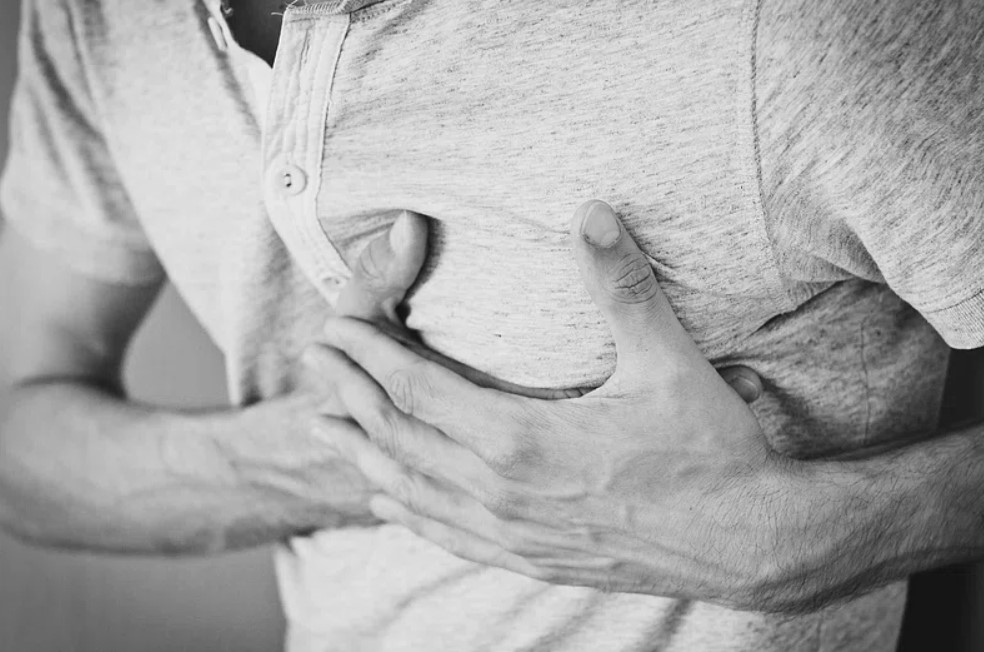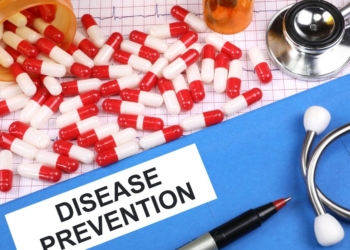Did you know that up to 75% of people who visit the emergency room for chest pain may be experiencing symptoms related to anxiety rather than a heart attack? The connection between anxiety, panic disorder, and chest pain can often be surprising, yet it is more common than many realize. Understanding how anxiety, panic disorder can manifest physically, such as through chest discomfort, is crucial in managing both mental and physical well-being.
Anxiety-induced chest pain can mimic the symptoms of serious cardiac issues, leading to unnecessary panic and stress. In this post, we will delve into the relationship between anxiety, panic disorder, and chest pain, exploring how these conditions can intersect and impact patients’ overall health and quality of life.

Understanding Anxiety and Its Physical Effects
Physical Symptoms of Anxiety
Anxiety is more than just feeling worried; it can also lead to physical symptoms. Anxiety symptoms vary from person to person, but some common ones include chest pain, rapid heartbeat, and shortness of breath. These physical manifestations are often associated with anxiety attacks or episodes of intense fear.
When someone experiences an anxiety attack, they may feel as though they are having a heart attack due to the chest pain. This is because during times of stress or anxiety, the body’s natural mechanisms can trigger these physical sensations. It’s essential to recognize that these symptoms are part of the body’s stress response system rather than a sign of an underlying medical condition.
Pros: Recognizing physical symptoms can help individuals identify when they are experiencing anxiety.
Cons: Physical symptoms may mimic serious health issues like heart problems if not properly understood.
Connection Between Anxiety and Physical Health
Understanding the link between anxiety and its physical effects is crucial for managing the condition effectively. Chronic anxiety can have profound effects on patients’ overall well-being. When left untreated, persistent anxiety could lead to functional disability due to a range of somatic symptoms such as muscle tension and increased blood pressure.
Individuals with generalized anxiety disorder (GAD) or panic disorder (PD) often experience recurring episodes where their bodies go into overdrive in response to perceived threats or stressors. These conditions fall under the umbrella term “anxiety disorders,” which encompass various types like phobic anxieties and panic disorders.
Recognizing how anxiety affects your body physically helps in distinguishing between normal bodily responses and those triggered by excessive worry.
Seeking professional help for managing both psychological aspects like worry as well as physiological responses such as chest pain is vital for effective treatment for patients with anxiety disorders, phobic anxiety, and panic disorder.
The Connection Between Anxiety and Chest Pain
Symptoms of Anxiety-Induced Chest Pain
Anxiety-induced chest pain is a prevalent symptom among patients with anxiety disorders. This type of chest pain can often mimic the sensations experienced by patients during a heart attack, leading to heightened distress and panic. People suffering from anxiety may describe the pain as a feeling of tightness or pressure in their chest, sometimes radiating to their arms, back, neck, or jaw.
Recognizing these symptoms is crucial for differentiating between anxiety-related chest pain and cardiac issues in patients. While anxiety-induced chest pain does not typically indicate a problem with the coronary arteries, it can still be alarming due to its intensity and resemblance to more severe conditions like coronary artery spasm.
Understanding the Relationship Between Anxiety and Chest Pain
The association between anxiety and chest pain lies in how stress impacts the body physically. When someone experiences intense feelings of worry or fear, their body’s stress response can trigger various physical symptoms, including chest discomfort. This discomfort arises from factors such as muscle tension, shallow breathing patterns, and increased heart rate associated with anxious episodes.
It’s essential for healthcare providers to consider both physical health and mental well-being when evaluating patients presenting with chest pain. By acknowledging the connection between anxiety disorders and somatic symptoms like chest pain, medical professionals can provide appropriate care that addresses both aspects of an individual’s health effectively.
Differentiating Anxiety-Induced Chest Pain from Other Causes
Diagnostic Tools
Medical professionals use various tools like evaluating patients’ medical history to differentiate anxiety-induced chest pain from other causes. Tests help rule out noncardiac issues.
Chest pain due to anxiety often presents with a different pattern compared to heart-related chest pain. For instance, anxiety-induced chest pain may be sharp and fleeting, while cardiac chest pain is often described as pressure or tightness.
Importance of Accurate Diagnosis
Accurate diagnosis is crucial in ensuring appropriate treatment for anxiety-related chest pain. Misdiagnosis can lead to unnecessary treatments or neglect of underlying mental health concerns.
It’s vital for healthcare providers to consider all possible causes of chest pain before attributing it solely to anxiety. This approach ensures that patients receive the most effective care tailored to their specific condition.
Symptoms of Chest Pain Caused by Anxiety
Sharp Sensation in the Chest
Anxiety-induced chest pain can manifest as a sharp or stabbing sensation in the chest. This feeling may resemble a sudden, intense pain that individuals might describe as piercing or stabbing. It is crucial to note that this type of discomfort is often linked to anxiety and not necessarily indicative of a cardiac issue.
Individuals, patients experiencing anxiety-induced chest pain may also encounter tightness or pressure in the chest area during episodes of heightened anxiety. This sensation can feel like someone is squeezing their chest, making it difficult for patients with PD to take deep breaths comfortably. Understanding these symptoms can help differentiate between anxiety-related discomfort and other potential causes.
Other Accompanying Symptoms
In addition to chest pain, those suffering from anxiety might also exhibit other accompanying symptoms such as dizziness, which could range from mild lightheadedness to severe vertigo. Furthermore, sweating excessively without physical exertion or high temperatures could be another sign of an underlying anxious episode.
Moreover, individuals experiencing anxiety-induced chest pain may report feelings of impending doom—a sense that something catastrophic is about to happen even though there’s no evident threat present at that moment. Recognizing these additional symptoms alongside chest discomfort aids in identifying the root cause behind the physical manifestations.
Why Does Anxiety Cause Chest Pain?
Stress Hormones and Physical Sensations
Anxiety can trigger the release of stress hormones in patients, leading to physical sensations such as chest pain. When a person experiences anxiety, their body goes into “fight or flight” mode, releasing adrenaline and cortisol. These stress hormones can cause various physical symptoms, including tightening of muscles around the chest area.
The release of stress hormones due to anxiety can result in an array of physical effects on the body. For instance, when someone is anxious, their heart rate may increase rapidly due to the surge of adrenaline. This heightened heart rate coupled with muscle tension around the chest region could manifest as discomfort or even sharp pains in the chest.
Muscle Tension and Chest Discomfort
Increased muscle tension is another way that anxiety causes chest pain. When a person is anxious or stressed, they often unknowingly tense their muscles throughout their body, including those around the chest area. This continuous muscle tension from prolonged anxiety episodes can lead to discomfort or pain in the chest region.
Moreover, individuals experiencing anxiety may clench their jaw or tighten their shoulders without realizing it—a common response to stress that contributes to overall muscle tension in the upper body. The accumulation of this muscular strain over time can exacerbate any existing discomfort felt in the chest area due to anxiety-related factors like increased heart rate and shallow breathing patterns.
Hyperventilation and Oxygen Levels
Hyperventilation is a typical physiological response triggered by anxiety, characterized by rapid breathing that exceeds normal oxygen intake levels. During moments of heightened anxiety where hyperventilation occurs, patients might experience an imbalance between oxygen intake and carbon dioxide expulsion within the system—potentially resulting in changes affecting blood chemistry.
Managing Anxiety to Reduce Chest Pain
Relaxation Techniques
Engaging in deep breathing exercises and practicing meditation are effective ways to manage anxiety, subsequently reducing chest pain. Deep breathing helps calm the mind and body, lowering heart rate and decreasing the occurrence of heart palpitations. Meditation aids in promoting a sense of peace and relaxation, alleviating stress that may contribute to chest pain. By incorporating these techniques into daily routines, patients can better control their anxiety levels and mitigate associated physical symptoms like chest discomfort.
Regular physical exercise is a beneficial strategy for combating anxiety and its manifestations such as chest pain in patients. Exercise plays a crucial role in regulating both heart rate and breathing patterns, which are often affected by heightened anxiety levels. When engaging in physical activities like jogging or yoga, the body releases endorphins that act as natural mood lifters, reducing feelings of anxiousness. By maintaining a consistent exercise regimen, patients can effectively manage their anxiety symptoms over time while experiencing fewer episodes of chest pain.
Cognitive-Behavioral Therapy (CBT)
Cognitive-behavioral therapy (CBT) stands out as an impactful treatment option for individuals struggling with anxiety-induced chest pain. Through CBT sessions with trained therapists or counselors, patients learn how to identify negative thought patterns contributing to their anxiety. By challenging these thoughts through structured exercises provided during therapy sessions, patients can reframe their perspectives on stressful situations that trigger both mental distress and physical symptoms like chest pains. CBT equips patients with coping mechanisms to navigate anxious feelings more effectively outside therapy sessions.
Pros:
Holistic approach to managing both mental health concerns and physical symptoms.
Empowers patients by providing them with practical tools for long-term symptom management.
Cons:
Requires commitment to regular practice or attendance at therapy sessions for patients with pd.
May not yield immediate results; progress may be gradual but sustainable.
When to Seek Medical Help for Chest Pain
Severe Chest Pain with Shortness of Breath or Radiating Arm Discomfort
If chest pain is intense and comes with shortness of breath or spreads down the arm, it’s crucial to seek immediate medical attention. These symptoms could indicate a potential heart attack, and prompt care is essential. For instance, if you experience sudden chest discomfort along with feeling lightheaded and short of breath, it might be a sign of an underlying heart issue.
Seeking help promptly can make a significant difference in managing any serious conditions that may be causing the pain. Remember, your health should always come first when dealing with such symptoms.
Persistent or Worsening Chest Pain Over Time
When chest pain doesn’t go away or becomes more severe over time, consulting a healthcare professional is advisable. Even if you suspect that anxiety might be contributing to the discomfort, getting evaluated by a physician can provide clarity on the root cause. It’s better to err on the side of caution.
Lifestyle Changes and Techniques to Alleviate Anxiety
Sleep Hygiene
Maintaining a regular sleep schedule is crucial in reducing anxiety levels and minimizing chest pain. When you have consistent sleeping patterns, your body can better regulate stress hormones, helping to alleviate anxiety-induced discomfort. Ensuring you get enough rest each night can significantly impact how your body responds to stressful situations.
Practicing good sleep hygiene involves creating a bedtime routine that allows you to unwind before going to bed. This could include activities like reading a book, taking a warm bath, or practicing relaxation techniques such as deep breathing exercises. By establishing healthy sleep habits, you give your mind and body the opportunity to recharge and cope with anxiety more effectively.
Limiting Caffeine Intake
Excessive consumption of caffeine can worsen symptoms of anxiety and contribute to chest pain. Caffeine is known for its ability to increase heart rate and trigger feelings of nervousness or jitteriness in some individuals. By reducing or eliminating caffeinated beverages like coffee, tea, or energy drinks from your diet, you may experience a decrease in anxiety-related discomfort.
When consumed in large amounts, caffeine can disrupt sleep patterns and lead to heightened feelings of restlessness during the day. Cutting back on caffeine intake gradually can help patients minimize withdrawal symptoms while allowing their body to adjust without causing additional stress.
Professional Treatments for Anxiety-Related Chest Pain
Medications for Treatment
Medications like selective serotonin reuptake inhibitors (SSRIs) or benzodiazepines are commonly prescribed to manage anxiety-related chest pain. SSRIs work by increasing levels of serotonin in the brain, helping to improve mood and reduce anxiety symptoms. Benzodiazepines act as sedatives, calming the individual and alleviating feelings of distress associated with anxiety.
Patients experiencing severe anxiety-related chest pain may benefit from these medications prescribed by a psychiatrist or doctor. It’s essential for patients to follow the healthcare professional’s guidance on dosage and duration when taking these medications. While SSRIs may take a few weeks to show full effects, benzodiazepines provide more immediate relief but can be habit-forming if not used cautiously.
Psychotherapy Approaches
In addition to medication, psychotherapy plays a crucial role in managing anxiety-related chest pain. Cognitive-behavioral therapy (CBT) is a common form of psychotherapy that helps individuals identify and change negative thought patterns contributing to their anxiety. Through CBT sessions with a therapist, patients learn coping strategies and techniques to address their fears effectively.
Exposure therapy is another psychotherapeutic approach that gradually exposes patients to situations that provoke their anxiety in a safe environment. By confronting feared stimuli under controlled conditions, patients can desensitize themselves over time and reduce the intensity of their anxious responses. Both CBT and exposure therapy aim to equip individuals with tools to manage their emotions better during episodes of anxiety-related chest pain.
Combination Therapy for Severe Cases
For cases where anxiety-related chest pain is severe or persistent, healthcare professionals may recommend a combination of medication and therapy for comprehensive treatment. This integrated approach addresses both patients’ physiological symptoms through medication management and the psychological aspects through therapeutic interventions.
Combining medication like SSRIs or benzodiazepines with psychotherapy provides holistic care that targets various facets of patients’ experience with anxiety-related chest pain. By addressing both the physical sensations and emotional triggers (pd) associated with this condition, patients have a higher likelihood of achieving long-term relief from symptoms.
Summary
Anxiety can indeed cause chest pain, and understanding the connection between the two is crucial. By recognizing the symptoms and differentiating anxiety-induced chest pain from other causes, patients can take steps to manage their anxiety effectively. Lifestyle changes and professional treatments play a significant role in alleviating anxiety-related chest pain. Remember, seeking medical help when necessary is vital to ensure your well-being. By addressing your anxiety, patients can reduce the frequency and intensity of chest pain episodes, improving your overall quality of life.
Frequently Asked Questions
Can anxiety really cause chest pain?
Yes, anxiety can indeed cause chest pain. When you’re anxious, your body releases stress hormones that can lead to physical symptoms like tightness or discomfort in the chest area.
How do I differentiate between anxiety-induced chest pain, coronary artery spasm, and a heart attack?
Anxiety-induced chest pain is often described as sharp or stabbing and typically improves with relaxation techniques. On the other hand, heart attack-related chest pain is usually more intense and accompanied by other symptoms like shortness of breath and dizziness.
What are some common lifestyle changes to help alleviate anxiety-related chest pain and heart palpitations?
Practicing deep breathing exercises (pd), engaging in regular physical activity, maintaining a healthy diet, getting enough sleep, and reducing caffeine intake are all effective lifestyle changes that can help reduce anxiety levels and subsequently alleviate associated chest pain.
Is it necessary to seek medical help for every instance of chest pain caused by anxiety, heart palpitations, panic disorder, myocardial ischemia, coronary arteries?
While occasional episodes of mild chest discomfort due to anxiety may not always require immediate medical attention if you have been diagnosed with an anxiety disorder or experience severe or persistent symptoms, it’s crucial to consult a healthcare professional for proper evaluation and guidance on managing your condition effectively.
Are there professional treatments available specifically for managing anxiety-related chest pain and panic disorder?
Yes, various professional treatments such as cognitive-behavioral therapy (CBT), medication management prescribed by a healthcare provider, relaxation techniques taught by psychologists or therapists, and biofeedback training are all effective interventions aimed at addressing both the underlying causes of anxiety as well as its physical manifestations like chest pain.



















